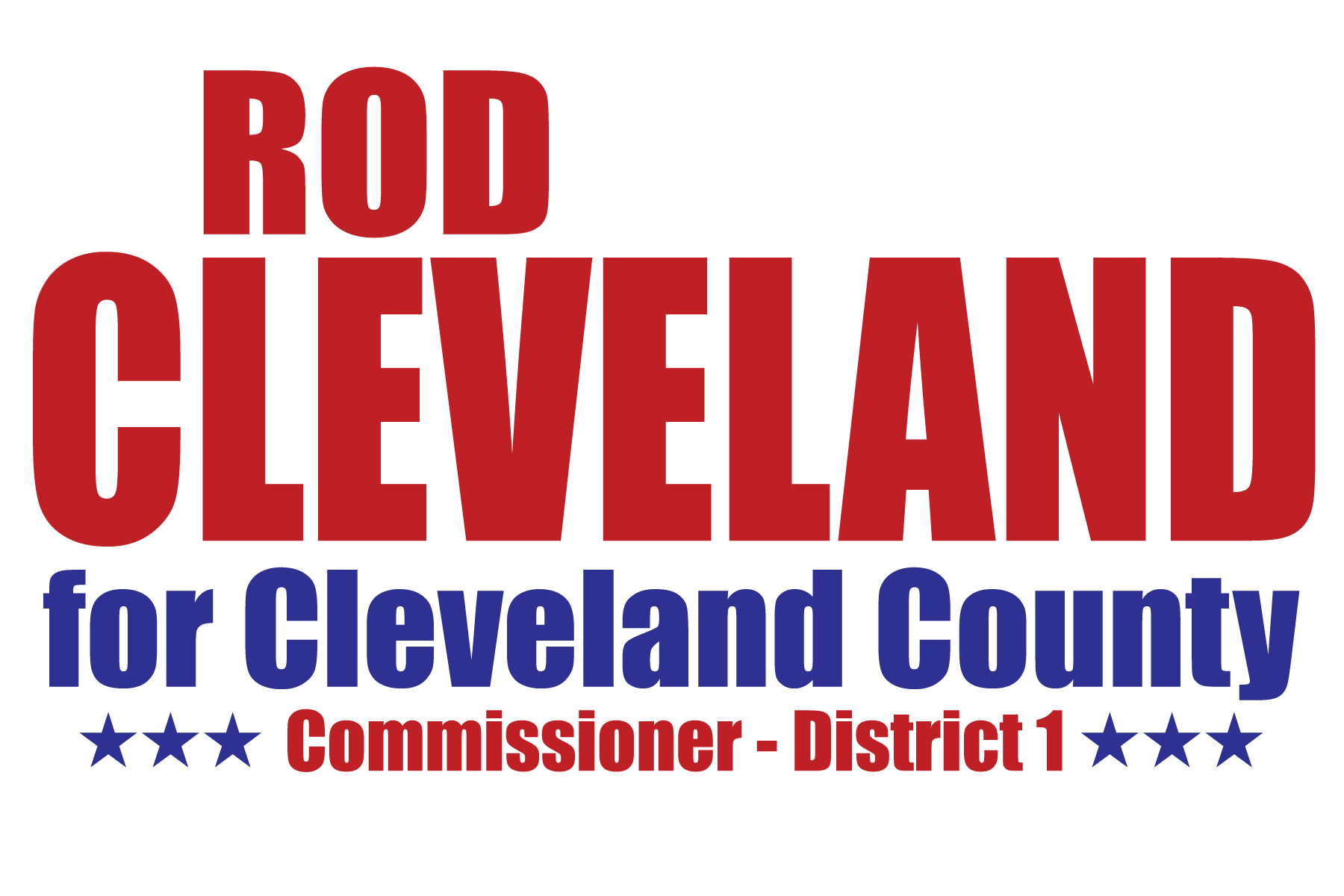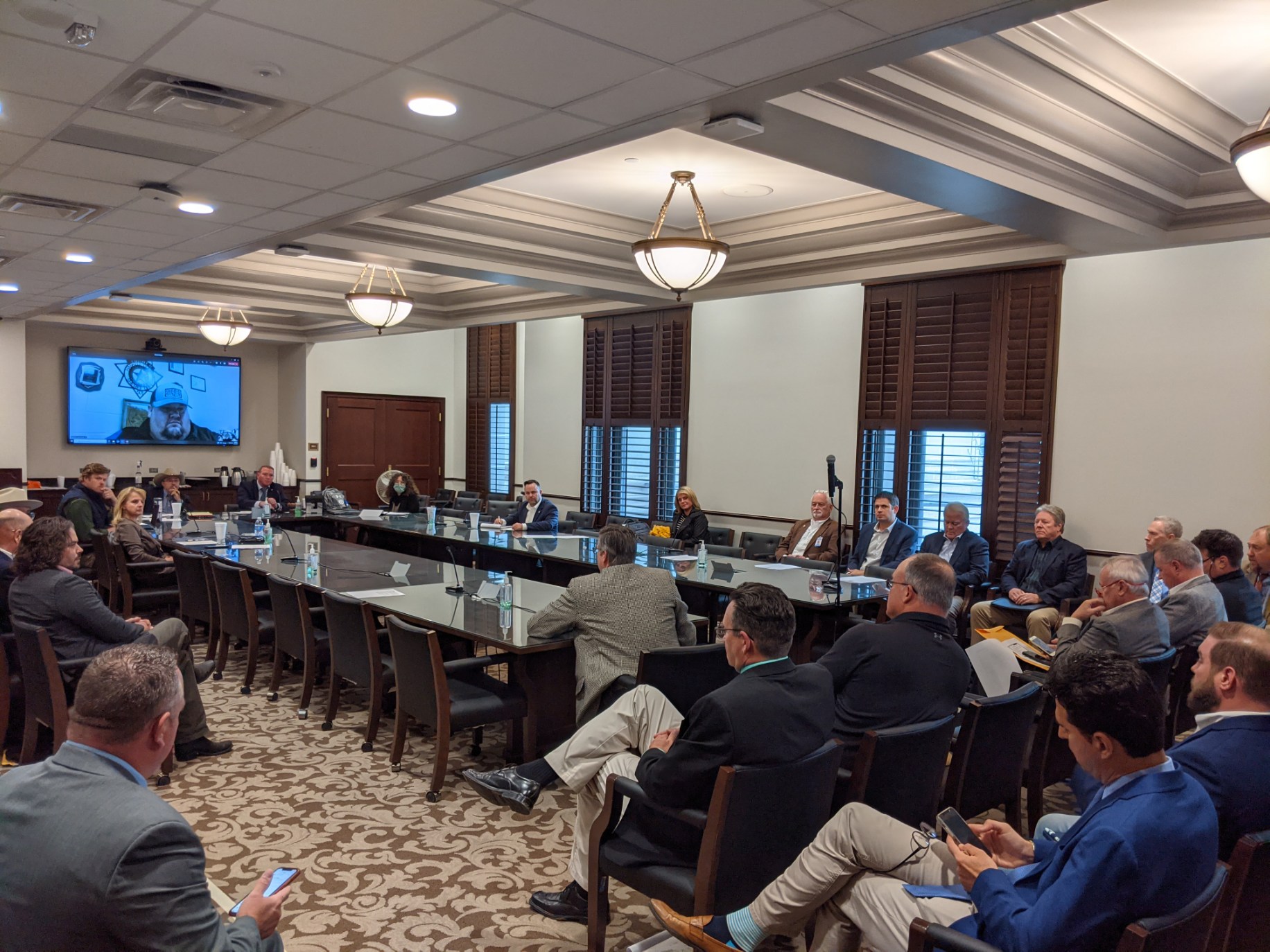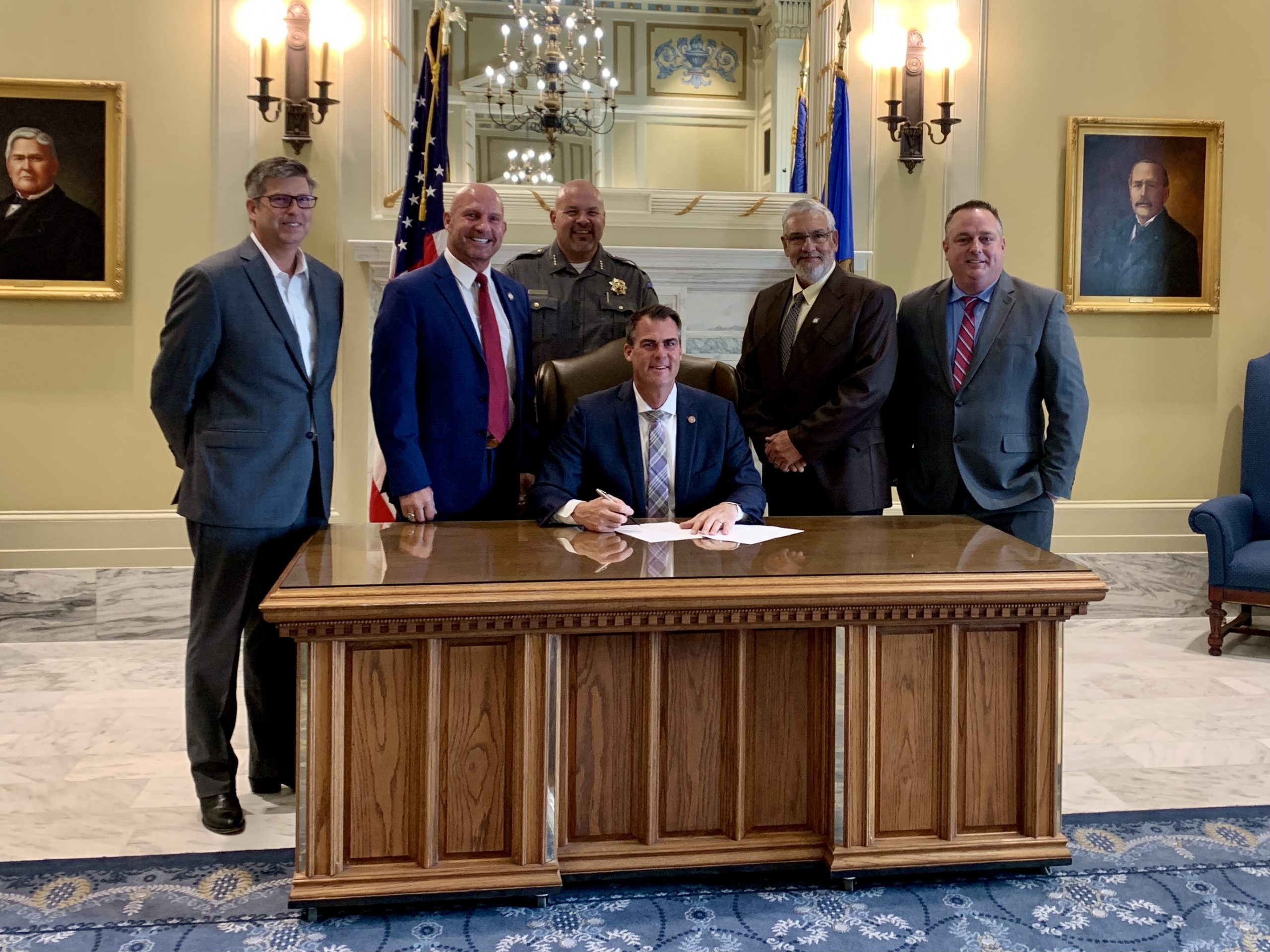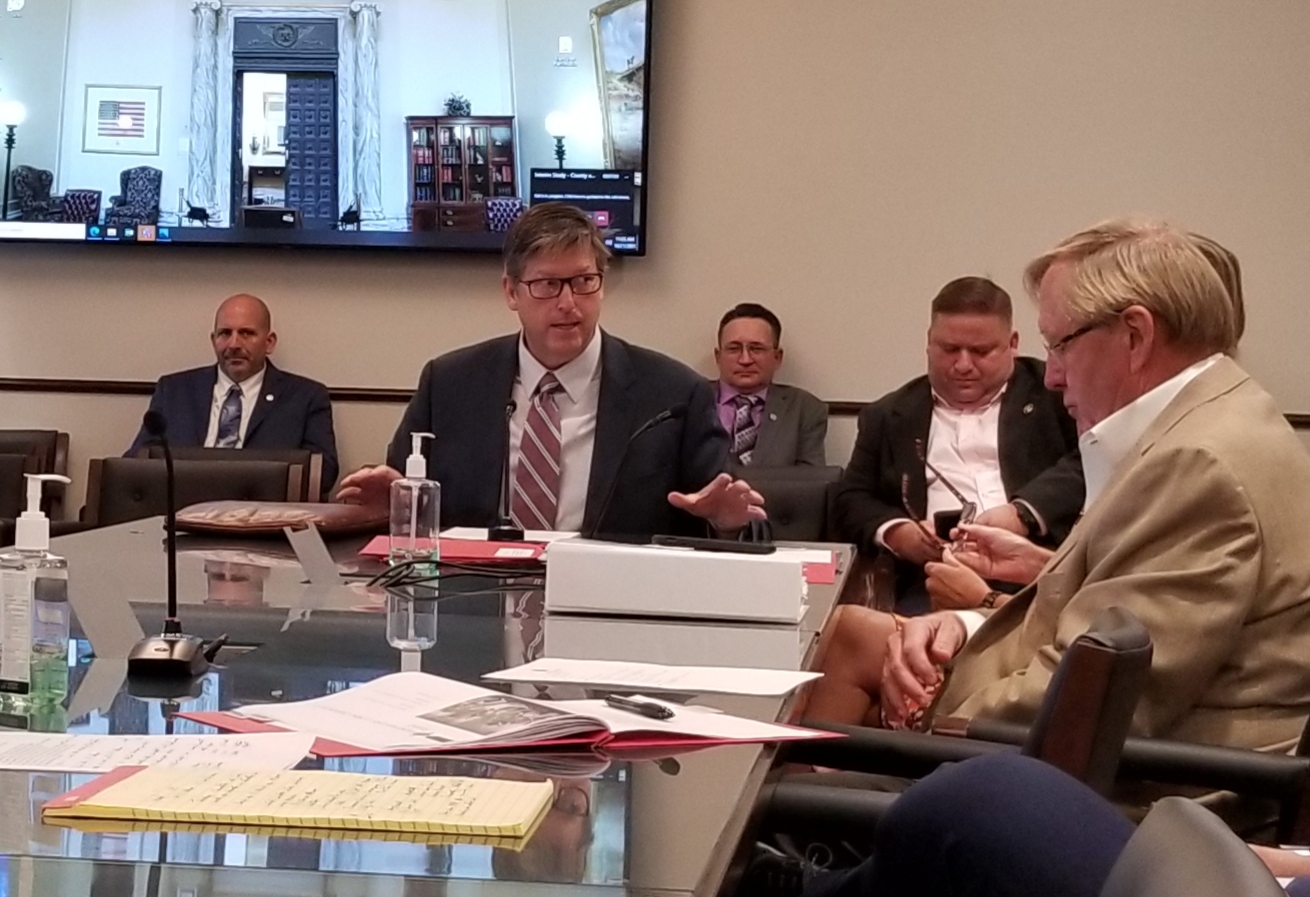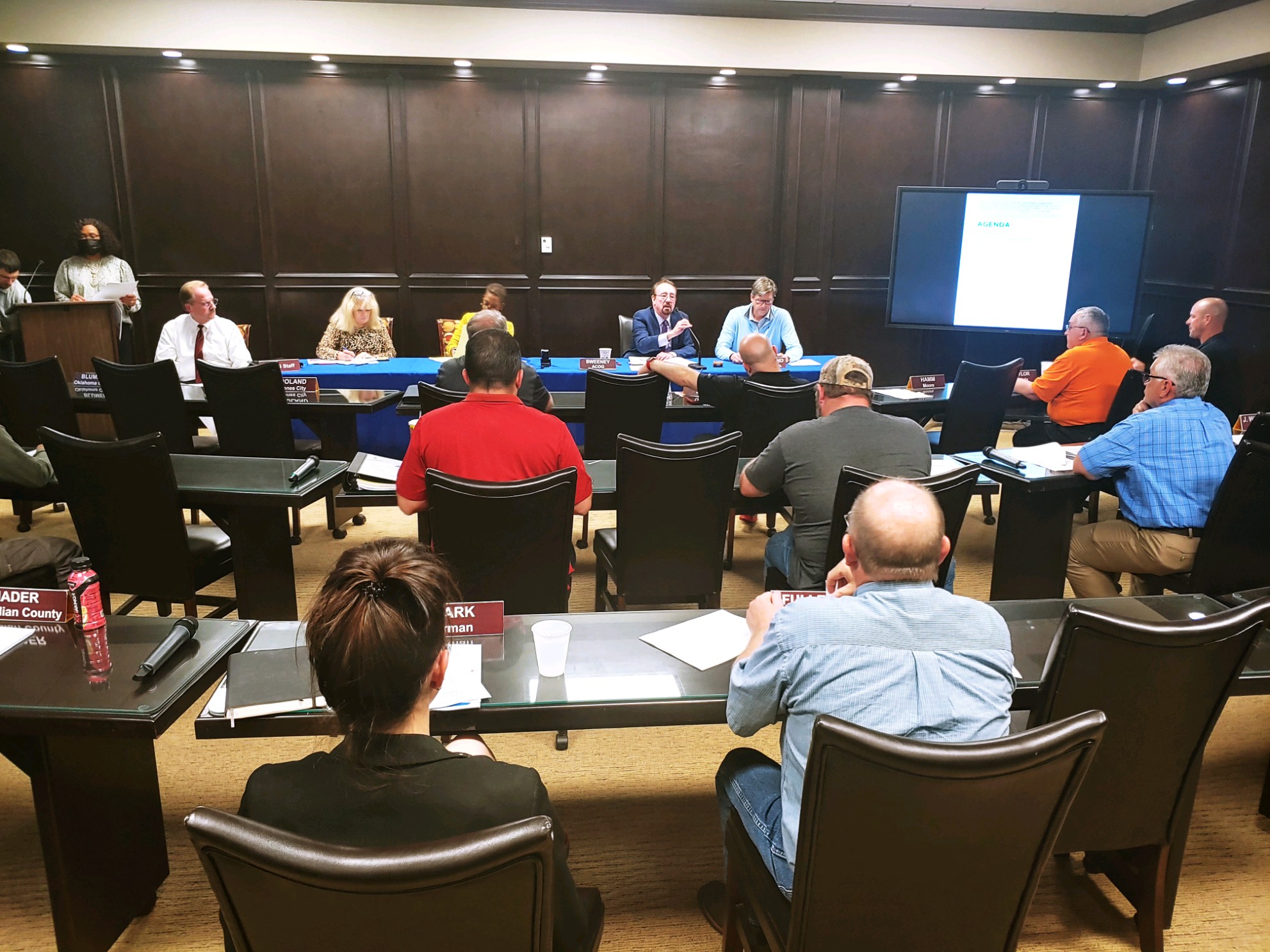There are three County Commissioner districts in each county of the state. County Commissioners are elected to a board and, as such, are responsible to the county as a whole. As the county’s administrative and business management entity, the board is required by law to hold a regular meeting on the first Monday of each month and to execute a wide range of legal and fiscal duties. Because of the large amount of business confronting Cleveland County government, a meeting is held on Monday of each week throughout the year. Among the Board’s responsibilities are the powers to make orders and authorizations, to inspect and approve county programs and facilities, to supervise the financial affairs of the county, to investigate the performance of county officials, and to designate, construct and maintain a county highway system.
The board meets in public sessions to transact county business. According to law and to principles of good government, the commissioners must act as a board in order to enter into contracts, make purchases, or make any other agreements affecting the county.
As the chief fiscal entity of the county, the Board of County Commissioners is in charge of receiving and expending funds and, therefore, must make major financial decisions and transactions, prepare budgets, award contracts, and act on claims. Annually, the board must consider the estimated needs of each county office for the next fiscal year and publish these estimates. The commissioners then forward these estimates to the Excise Board. In Cleveland County, budgets are prepared and adopted by the County Budget Board which is comprised of all county officers.
When the county anticipates major purchases or construction projects, the board advertises for bids and lets all contracts for these public works. State law also allows the Board, when necessary, to incur indebtedness in the name of the county. Commissioners are empowered to call county bond issue elections when necessary for public projects.
Another important function of the Board of County Commissioners is to ensure fiscal responsibility on the part of all officials who handle county funds. The board, therefore, not only submits its own annual financial report, but also has the power and the duty to audit the accounts of all the officers who receive, manage, or distribute any money belonging to or appropriated to the county.
Through these procedures of review and approval, the Board of County Commissioners has the means to assure the public that the county government is responsible and accountable. If the circumstances warrant, the board can lawfully take action against any officer found delinquent in his/her duties.
Counties are sup-political divisions of State Government and are unlike a municipality but have similar responsibilities and duties. The County Commissioners represent the county or a variety of local, and state boards that oversee and manage state and federal programs.
- County commissioners exercise the administrative powers given to them by the Oklahoma Statutes and the Oklahoma Constitution. County Commissioners:
- The governing body of the courthouse
- Exercise direct control over the county highway system
- Audit the accounts of all officers handling county money
- Make general financial plans for the county including the county budget
- Audit and approve claims against the county
- Issue calls for bond elections and other special elections
- Organize and direct “911” services
- Approve the county payroll
- Approve bids for major purchases or construction projects
- Develop personnel policies for the county
- Responsible for appointments to various county boards and positions
- Supervise affairs in small communities
- Organize solid waste management districts
- Selling or purchasing public land or buildings for the county
- Responsible for improving the efficiency of county government.
Commissioner Rod Cleveland represents Cleveland County and County Commissioners on the following boards and committees:
- Association of Central Oklahoma Governments MPO Committee
- 9-1-1 ACOG Board Chairman
- Association of Central Oklahoma Governments Board
- Central Oklahoma Workforce Investment Board (Chief Elected Officer)
- Department of Environmental Quality Solid Waste Advisory Committee (County Commissioner representative)
- National Association of Counties – Workforce & Economic Development Board, Rural Action Caucus, and Republican County Officials Caucus
- Homeland Security (Oklahoma Region 8 ) Advisory Committee
